
[ad_1]
Politics
/
August 16, 2024
The president’s foreign policy choices in the Middle East and Ukraine have been disasters. Harris needs to make a decisive break.
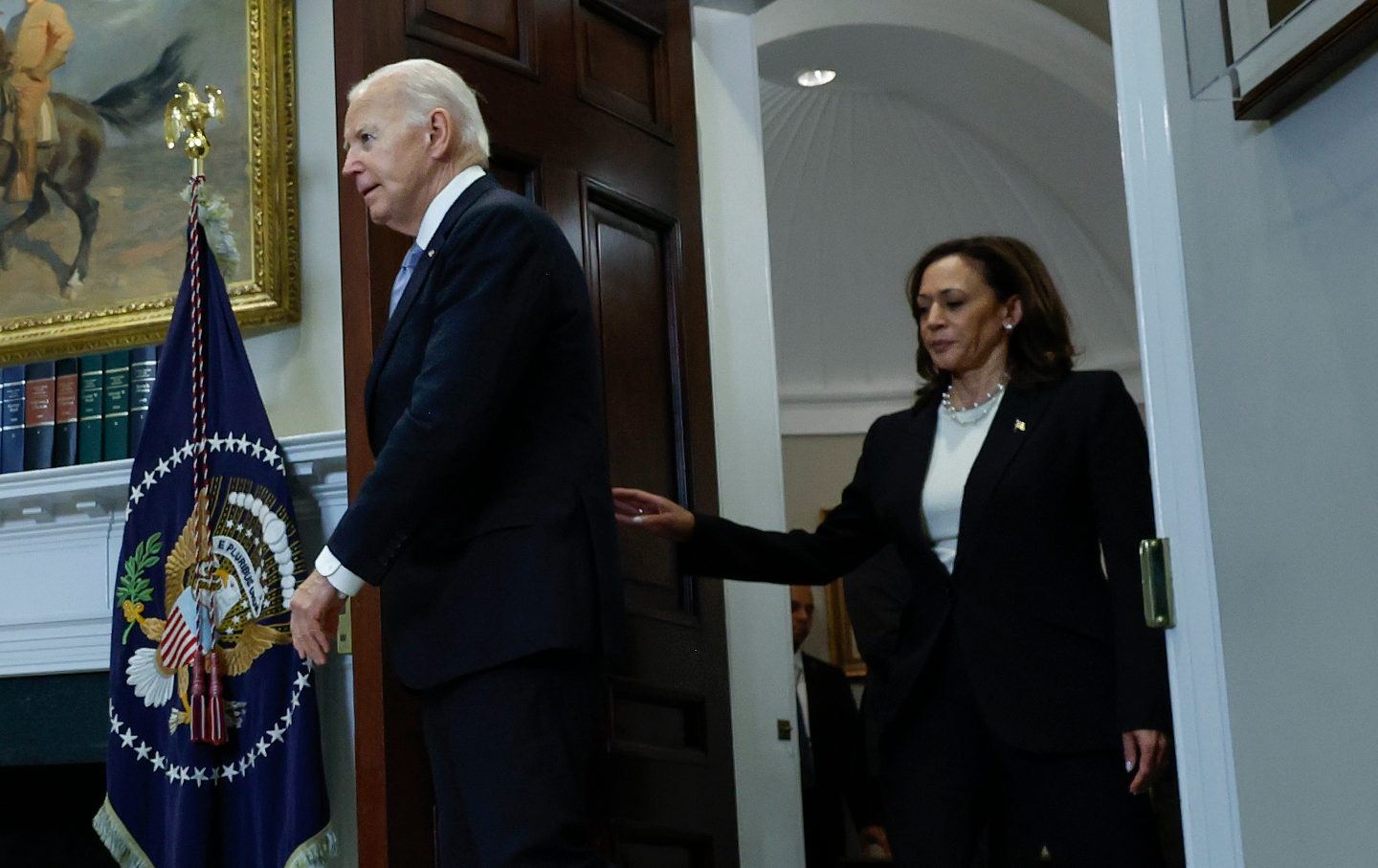
Joe Biden and Kamala Harris at the White House on July 14, 2024.
(Mandel Ngan / AFP via Getty Images)
Last November, I stopped participating in President Joe Biden’s national finance committee because I could no longer support his feckless approach to ending the war in the Gaza Strip, where Israel continues to use US weapons every day to kill innocent women and children. Now that Biden has stepped aside, I’m cautiously optimistic that Vice President Kamala Harris and her running mate, Minnesota Governor Tim Walz, have the political space and resolve to do what Joe Biden could not: make a fundamental course correction in how the US is managing dueling crises in Ukraine and Gaza.
The need for such a shift could not be more urgent. Israel’s reckless decision to assassinate Hamas political leader Ismail Haniyeh in Iran and Hezbollah commander Fuad Shukr in Lebanon has brought the region to the brink of a massive regional war, a war that is all too likely to drag US soldiers into yet another Middle East conflict.
I speak from experience when I say that Biden’s approach to the two wars has weakened America and brought the world closer to the kind of metastasizing global conflict we have all long feared. I spent much of the past few years as a frontline humanitarian worker in Afghanistan, Ukraine, and the Middle East trying—sometimes in vain—to rescue desperate families from the fatal consequences of Biden’s decisions.
The shortfalls in Biden’s conventional foreign policy approach emerged just a few months into his term with the poorly planned and unnecessarily chaotic withdrawal of American forces from Afghanistan.
As Kabul fell in August 2021, I flew to Afghanistan to help hundreds of panicked Afghans escape Taliban rule, even after the last US soldiers left without fulfilling Washington’s pledge to protect those who had helped America.
If lessons were taken from the poorly executed Afghanistan withdrawal, it’s unclear what they were.
Current Issue
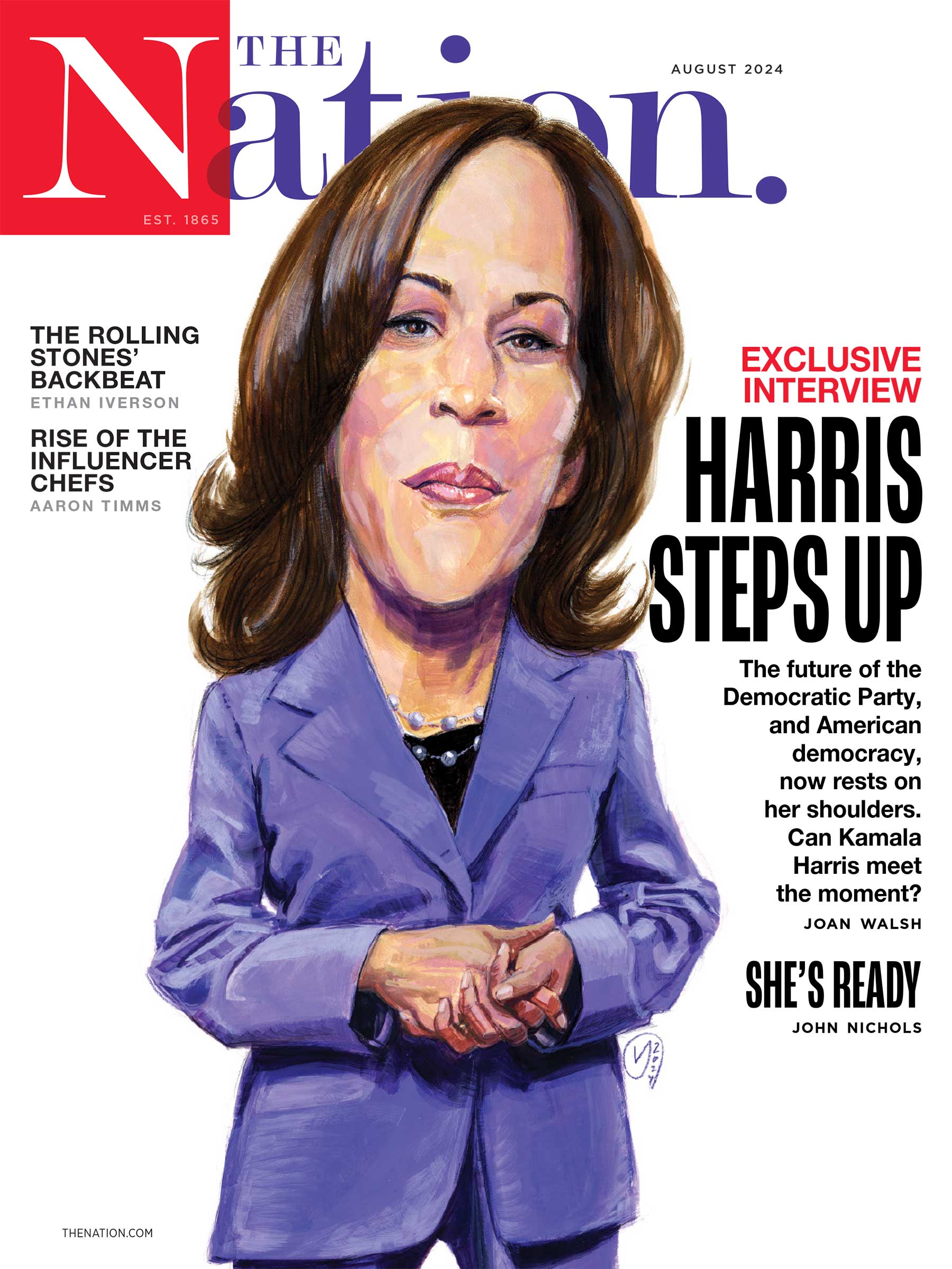
I was an early champion of Biden’s steadfast support for Ukraine President Volodymyr Zelenskyy (I’ve personally provided over $50 million in direct humanitarian aid to civilians in Ukraine) and his role in convening the global coalition of allies providing Kyiv with the weapons and support its leaders need to triumph over Russian President Vladimir Putin. He was right to back Ukraine, and I think that decision will be seen as his biggest foreign policy achievement.
But the same lack of strategic clarity I witnessed in Afghanistan became apparent the longer the Ukraine war went on. Two-and-a-half years later, I’ve lost more Ukrainian friends than I can count. And while the US has spent nearly $175 billion on a policy that helped Ukraine beat back Russian advances, the strategy now appears to be to support a bloody quagmire with no military or diplomatic resolution to the conflict in sight. Ukraine’s current incursion into Russia serves as further proof of its capabilities. However, it will do little to fundamentally change the tide of the war unless the administration can finally bring itself to do what it takes to send the Russians back home.
We must ask for more of Harris. She and Walz still face an uphill battle against Trump, and preventing his return to the White House will require the vice president to do more than develop viral memes and “Brat”-era branding. To win back disillusioned voters like me this November, Harris needs to make a decisive break with Biden’s foreign policy and chart a new path for the United States as a morally grounded global leader, especially in the Middle East and Ukraine.
Part of this break has to include changing tack on Gaza. The war there galvanized American students in a way unseen since the anti-apartheid movement of the 1980s. Biden’s unconditional backing of Israel sapped his support among demoralized voters like me who expected a baseline respect for international law and innocent civilian lives. Biden’s “bear hug” strategy towards Prime Minister Benjamin Netanyahu’s government failed to deter Israel from inching toward a regional war or from continuing to kill innocent Palestinian women and children by the thousands.
Almost every day, I receive imploring messages from doctors working inside Gaza asking me to help them get critically injured children out—or life-saving medicine in. Biden’s approach—mild criticism mixed with near-ceaseless military support—has been completely ineffective.
I still have nightmares about those I haven’t been able to save. Early in the war, I worked on getting a 24-year-old mother named Layla, and her infant daughter, Alia, out of Gaza. Layla was killed in an air strike 10 days into the war. We worked around the clock with various officials to try to secure permission to get Alia out of Gaza. But another Israeli airstrike killed Alia before we could get her to safety.
Meanwhile, US military aid drops and sea runs were no substitute for the simple solution to end a slow-motion genocide: Compelling Israel to open its borders again to allow thousands of aid trucks to drive into Gaza.
Harris’s remarks following a July 25 meeting with Netanyahu offered hope for those of us seeking a more active US role in ending the conflict and preventing a regional war. She centered the suffering of Palestinians and rejected Netanyahu’s claim made earlier that day that Israel “must retain overriding security control [in Gaza],” saying that a ceasefire and hostage deal would require “a withdrawal of the Israeli military from population centers in Gaza.”
Ad Policy
Harris needs to build on those words and start moving the needle now. She can join forces with US officials and throughout the Biden administration who are quietly trying in vain to persuade the president and his top advisers to take a tougher stand with Netanyahu. She can stop relying on the policy prescriptions of a small group of Beltway think tanks stacked with former officials eager to defend their failed policies and maintain their financial support from weapons companies and foreign governments. And she can press for the Biden administration to impose an arms embargo on Israel, demand that Netanyahu engage in good faith with ceasefire negotiations, and resume funding the United Nations Relief and Works Agency for Palestine, which Israel has baselessly accused of collaborating with Hamas.
The vice president already struck the right tone after meeting Netanyahu, but now is the time for Harris to start making sure her actions match her words.
Popular
“swipe left below to view more authors”Swipe →
Taking a clear moral stand now—backed by concrete steps laying out how she would lead the nation in a new direction—would allow Harris to reenergize support among voters likely to decide the outcome of the presidential race. Harris needs to regain their trust if she hopes to build a winning coalition in key states this November.
Can we count on you?
In the coming election, the fate of our democracy and fundamental civil rights are on the ballot. The conservative architects of Project 2025 are scheming to institutionalize Donald Trump’s authoritarian vision across all levels of government if he should win.
We’ve already seen events that fill us with both dread and cautious optimism—throughout it all, The Nation has been a bulwark against misinformation and an advocate for bold, principled perspectives. Our dedicated writers have sat down with Kamala Harris and Bernie Sanders for interviews, unpacked the shallow right-wing populist appeals of J.D. Vance, and debated the pathway for a Democratic victory in November.
Stories like these and the one you just read are vital at this critical juncture in our country’s history. Now more than ever, we need clear-eyed and deeply reported independent journalism to make sense of the headlines and sort fact from fiction. Donate today and join our 160-year legacy of speaking truth to power and uplifting the voices of grassroots advocates.
Throughout 2024 and what is likely the defining election of our lifetimes, we need your support to continue publishing the insightful journalism you rely on.
Thank you,
The Editors of The Nation
Amed Khan
Amed Khan is a human rights advocate, political activist, and philanthropist.
More from The Nation
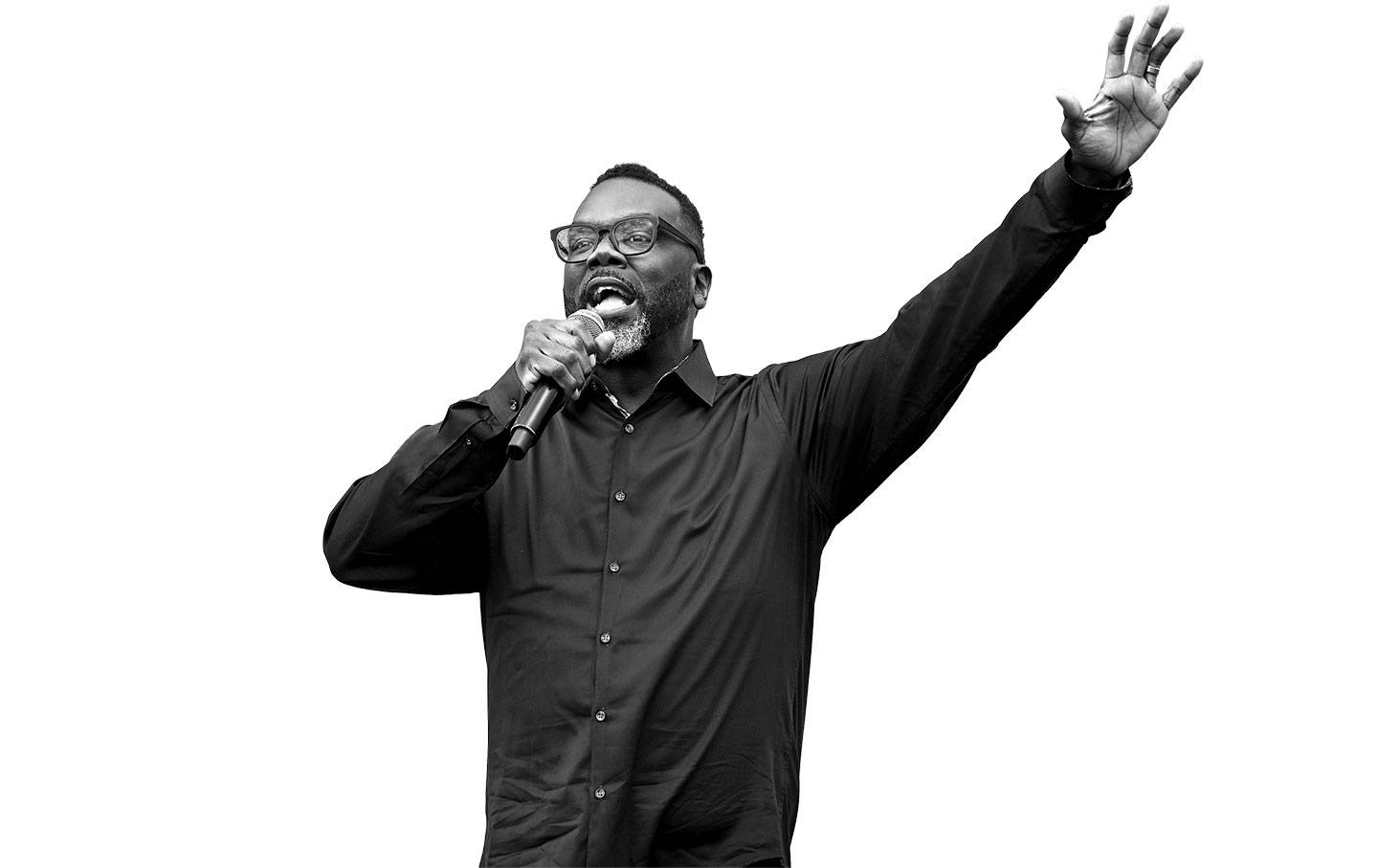
A conversation with the Chicago mayor about his vision for progressive governance and the City Council’s vote calling for a ceasefire in Gaza.
Q&A
/
John Nichols

A conversation about MAGA’s militancy and the strategies to protect Democracy.
Q&A
/
Laura Flanders

Insecure and contemplating defeat, the former president returns to a familiar script.
Jeet Heer
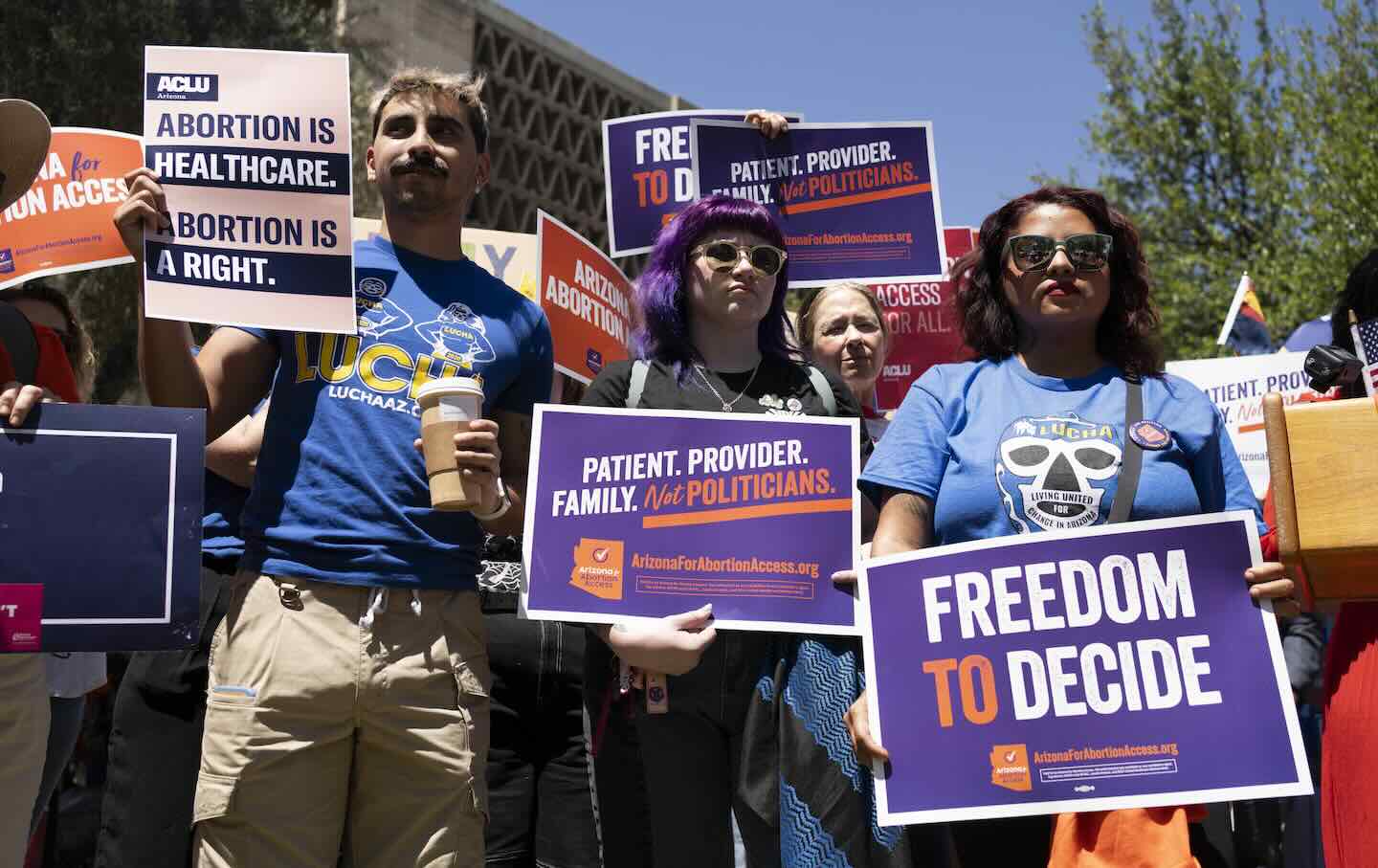
The GOP has been desperately trying—and failing—to shift the public’s attention onto other issues.
Sasha Abramsky
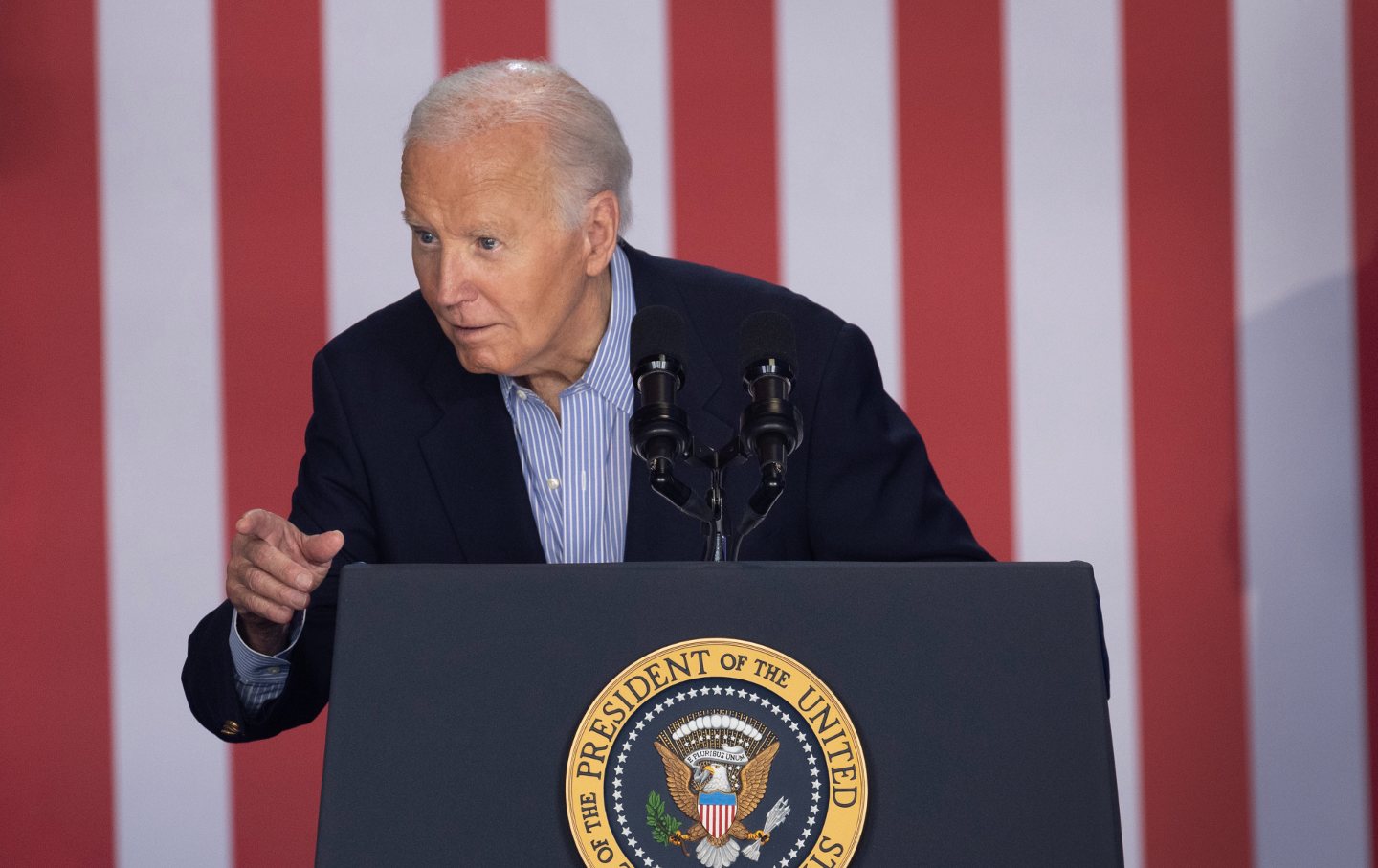
Hey, can we circle back to when many supposedly intelligent people were making one of the most obviously ridiculous political arguments of all time?
Joshua A. Cohen
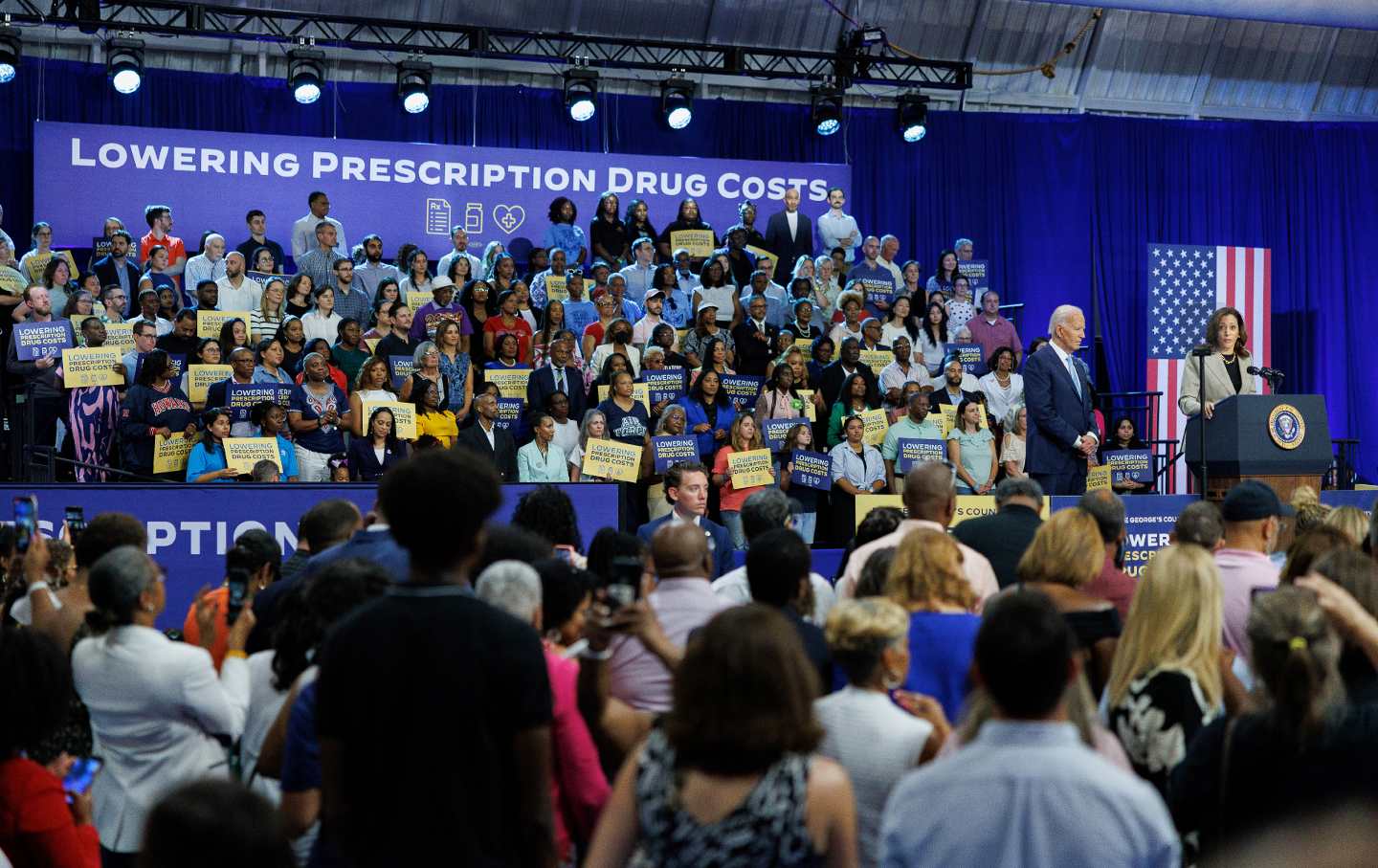
The were celebrating a landmark Medicare price reduction, but they were really putting their partnership back on display.
Joan Walsh
[ad_2]